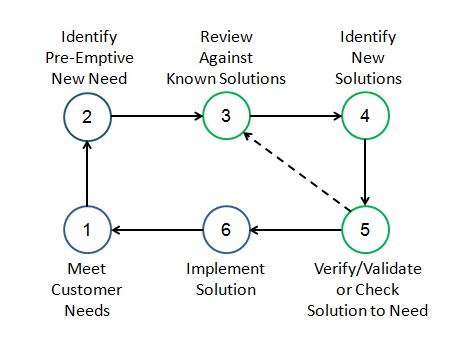1. Employ a proactive approach towards customer service:
Instead of waiting for problems to occur, a company that implements anticipatory service can curb problems before their occurrence. And the best way to do that is to employ a proactive approach. Knowing the problems beforehand and being ready with the best solutions helps a lot in customer retention.

2. Inculcate courtesy system:
A courtesy system refers to a powerful system that enhances the interpersonal skills of your team and changes the spirit of your organization. It involves speaking to colleagues politely and pleasantly and treating them just like you would want them to treat your customers. This will help your team to feel worthwhile and important, which will further result in pleasant social contacts at work. It also motivates them to provide extraordinary service consistently. This results in long termed loyal customers.
3. Be an expert in your particular field:
As a matter of fact, if you know every bit of your business you will likely retain more customers. Your customers will trust you, rely on you for the best pieces of advice, and recognize you as an inevitable part of their business success. All you need to do is inform them of upcoming changes. Also, you need to provide some insightful recommendations regarding their business. This proactive, approach will render customer retention strategies more effective.
4. Do whatever it takes to woo your customers:
Going that extra mile for your customers to provide customer satisfaction is an easy way to build strong relationships. By doing this, you can build some serious long-term loyalty. Moreover, if your clients know you are more than ready to go above and beyond, they will stick with you when competitors enter the lucrative market.

5. Loyalty Programs:
Loyalty programs are defined as structured marketing strategies designed by merchants to encourage customers to continue to shop at or use the services of businesses associated with each program. In marketing generally and in retailing more specifically, a loyalty card or rewards card identifies the card holder as a member enrolled in a loyalty program. With these cards, customers typically earn the right:
i) either to a discount on the current purchase
ii) or to an allotment of points that they can use for future purchases.
Loyalty programs